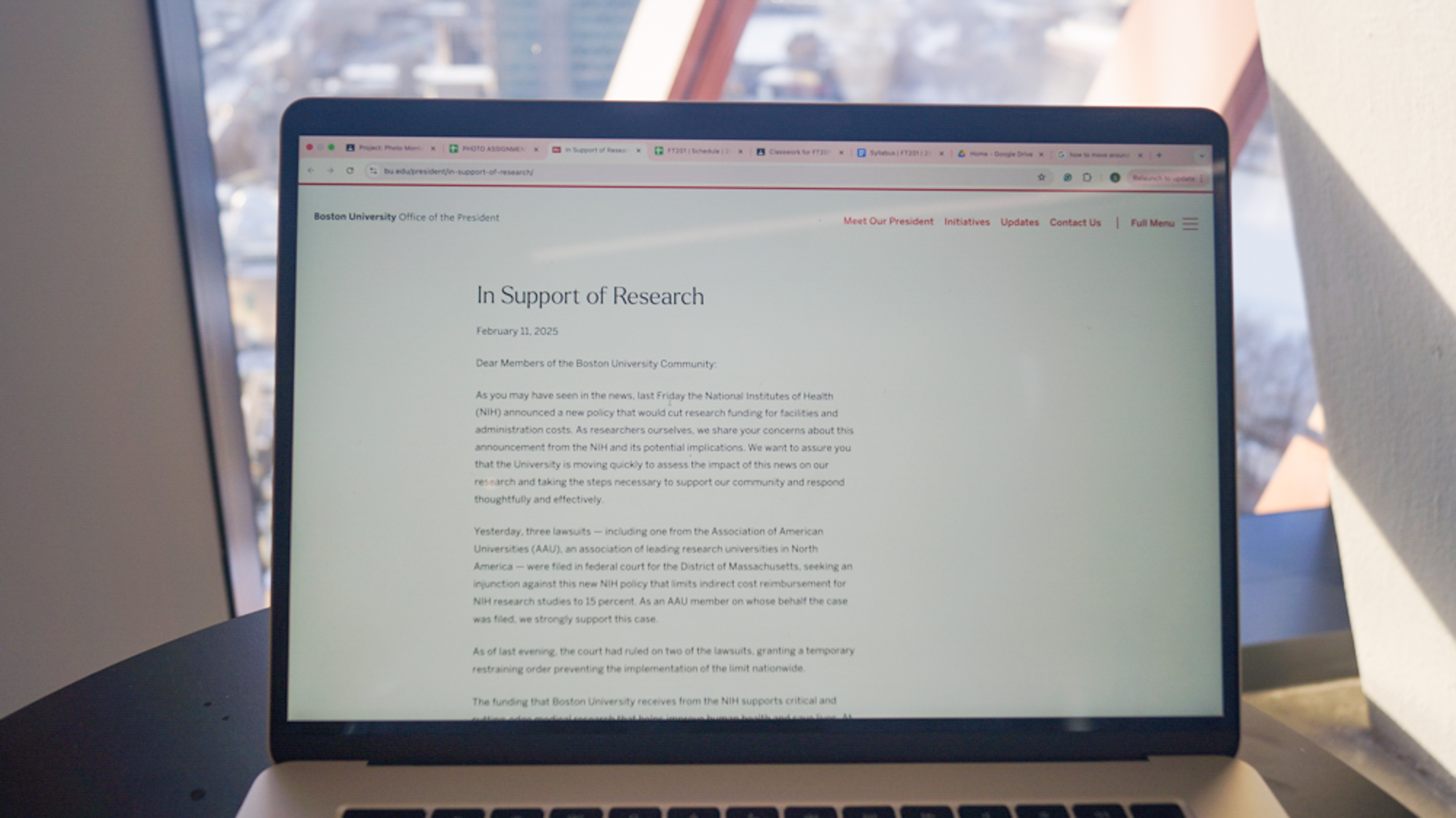The National Institute of Health announced it is limiting “indirect costs” — funds allocated toward facilities and administration — for research grants to a maximum of 15% on Feb. 7. This new policy halves previous indirect cost rates, limiting research funding for multiple Boston universities and hospitals.

Matt Motta, an assistant professor in the Department of Health Law, Policy and Management at the Boston University School of Public Health, said the NIH cuts are “quite literally breaking the law.”
“The way that indirect rates usually work is that they are a negotiation between the government and those who the government is paying,” Motta said. “By turning that negotiation into a one-sided affair by putting a, frankly, cartoonishly low cap on what those indirect rates can be is going to really, really hurt American universities.”
Three separate universities each filed a lawsuit on Feb. 10 against NIH and the Department of Health and Human Services since the new policy’s announcement. The same evening, courts ruled in favor of two of the lawsuits, temporarily halting the implementation of the new limits nationwide.
The Massachusetts Institute of Technology was one of the three universities.
In a statement to the MIT community, MIT President Sally Kornbluth wrote “We believe these proposed cuts are unlawful and pose a direct threat to MIT’s mission – and they fracture the compact between the US government and its research institutions.”
Ari Ne’eman, an assistant professor of Health Policy and Management at the Harvard T.H. Chan School of Public Health and former member of the National Council on Disability during the Obama Administration, said this policy could have far-reaching consequences on America’s medical innovation.
“It’s a pullback on one of the things that has really served to give the United States one of the most robust biomedical research infrastructure in the world,” Ne’eman said. “We’re talking about disinvestment from the pipeline that has led to countless essential innovations in the medical and pharmaceutical sectors.”
BU President Melissa Gilliam responded to the NIH cuts in a statement to the University community.
“The funding that Boston University receives from the NIH supports critical and cutting-edge medical research that helps improve human health and save lives,” Gilliam wrote.
Researchers say the impacts of the policy may be extensive, however, according to BU Spokesperson Colin Riley, the cuts have not paused research at BU.
“It’s going to impact every single person, even if they don’t have NIH funding because the money BU and any university takes from the NIH is being used to keep all of us afloat,” Motta said. “It’s the money that keeps the lights on. That’s why this is so detrimental to all of us.”
James Cherry, a professor in the College of Arts and Sciences Psychological and Brain Sciences department, said because of the new policy, research departments will have to cut costs as the funding they’ve previously relied on dries up.
“BU’s going to have to get money from somewhere else,” he said. “Departments are going to have to tighten their belts.”
Cherry said while the effects may be widespread, research itself should remain largely unaffected.
“Maybe the first year of the grant, you’ve already received that money, but maybe the second year of the grant … that’s when [BU] will start to notice that they’re not getting the revenue that they’re expecting,” Cherry said.
Ne’eman said he speculates universities may have trouble sustaining graduate student enrollment, and researchers may face heavier costs to conduct research while spending more time on paperwork to fund their research rather than research itself.
He also said the medical sciences, with “very heavy capital expenditures for things like microscopes or lab equipment” may see the most significant adverse effects.
Boston hospitals, like Mass General Brigham, are assessing what the cuts could mean.
“We are currently reviewing to determine what, if any, impact this may have,” an MGB spokesperson wrote in an email to The Daily Free Press.
Despite the uncertainty the cuts mean for the future of research, Motta said The School of Public Health has been communicating with faculty well.
“They’re doing a good job … preparing us for what might happen,” Motta said. “I feel very supported in a way that helps me sleep a little bit better at night.”



















































































































